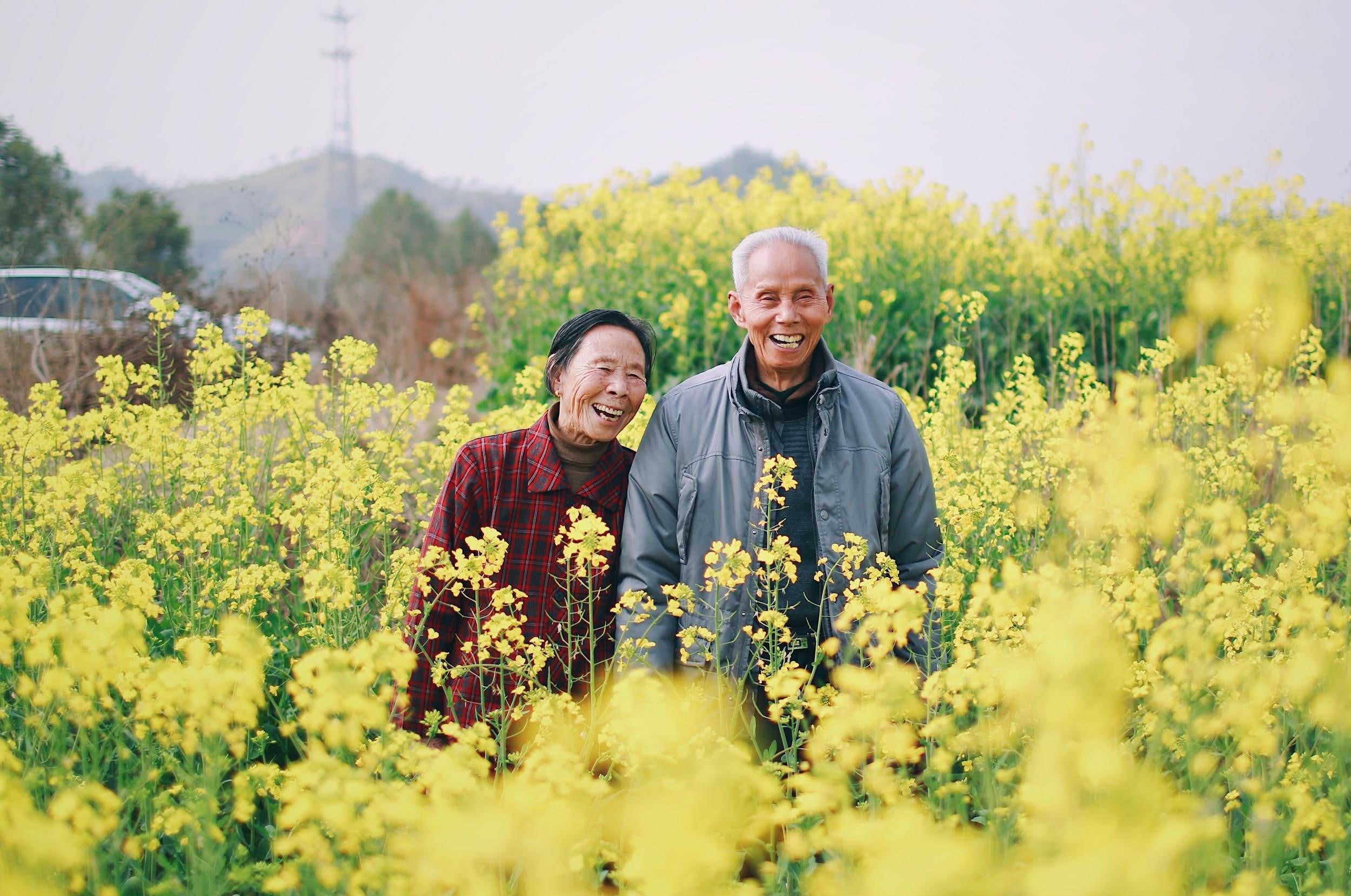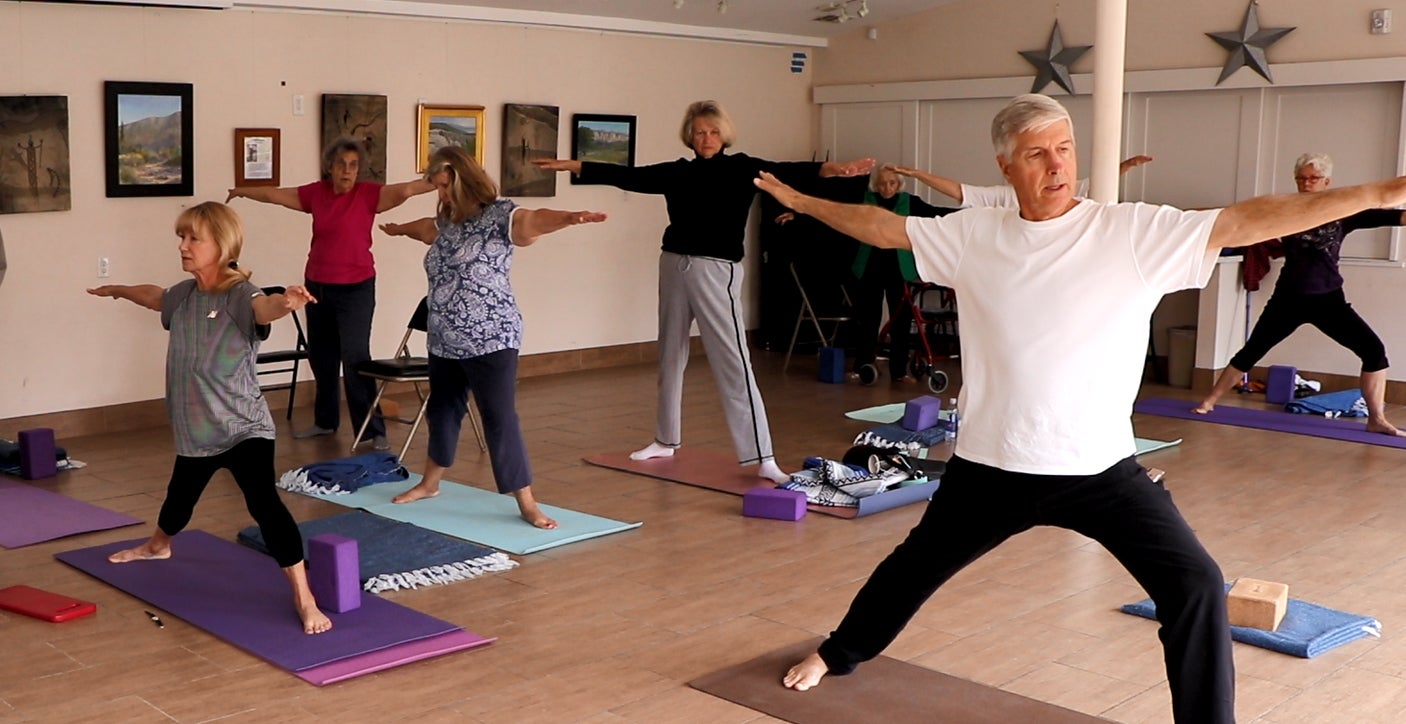A lot has changed over the course of our lifetime.
Improvements in medical care have increased our life expectancy by almost double what it was 100 years ago. More people have a college education today than ever before. Communication has evolved from telephones to text messages to video calls we can make from our televisions. Speaking of televisions, only 9% of households had a television in 1950; today, 98% of American homes do. The explosion of new technology has changed every aspect of our lives.
We like to view these malleable times as a great gift—an opportunity, if you will, to change the way that we view ourselves and reframe some of the more archaic and outdated ideas about aging and growing older.
A Necessary Renaming
The words we use have incredible power to shape our perspectives of ideas, people, and things. Older people do not live up to the stigmas and, most importantly, the language surrounding this time of life. So when it comes to the language we use to describe aging, it’s time for a refresh.
We propose a conscious (and necessary) renaming of terms and words associated with aging. Here are a few that we believe should be retired.
Old is a loaded word. It is commonly used to perpetuate ageist ideas. This is especially prevalent in marketing for anti-aging industries where being or looking “old” is something you should avoid at all costs.
Senior. While the word is meant to imply experience and prestige, it’s a fairly ambiguous word. As one journalist points out, “senior implies that people who receive the label are different, and somehow lesser, than those who don’t.” Further, many find the term “senior citizen” to be patronizing.
Elderly is often associated with frailty and immobility. We are living healthier and longer lives; few of us feel “frail” or inactive.
So, what should we replace these words with?
One term emerging in popular culture is “elder.” The word “elder” comes from the Old English word “eldra” which means “older person, parent; ancestor; chief, prince.” It connotes the wisdom that comes with time and the appreciation that comes from imparting that wisdom. That said, many people are comfortable with the term “older person” or “older adult” to describe this phase of life as well.
A perfect word has yet to emerge to describe this new generation of elders who are changing the norms and disrupting perceptions about aging. But given this generation’s ability to defy expectations, we’re sure the perfect word will crop up soon.
The Evolution of Aging
Before we can deconstruct and reframe ideas around aging, it’s important to understand how our perspectives have evolved to this point.
The role that elders play in society has shifted dramatically since the Industrial Revolution. Previously, the economy was largely agricultural, and income was based on land ownership. Land was passed onto younger generations, which created a symbiotic relationship between generations; we had to rely on each other for our livelihood. Parents taught their children how to work the land, and children cared for their parents as they grew older.
However, as the industrialized world grew, income shifted from land to work. People began moving away from rural areas to work in big cities. This shift in wealth not only changed the way that older people were viewed by society, but it also changed the way that people lived in their elder years.

Source: Business Insider
In the 1930s, during the Great Depression, thousands of Americans were displaced. The Great Depression disproportionately affected older citizens. Around this same time, the Social Security Act was signed into law and the modern idea of retirement began to evolve. Companies began implementing pension programs to phase older workers out of the workforce.
While corporate retirement programs and Social Security have greatly benefited thousands of people, they prompted the emergence of two beliefs that American culture still propagates today: that older people are dependents and no longer productive members of society.
Modern Ageism
Our ideas about the “worth” of older people are not accurate—and may have never been! But because American culture holds negative beliefs around aging, our social systems help further perpetuate ageist ideas.
“Like racism and sexism, ageism is not about how we look. It’s about what people in power want our appearance to mean. Ageism occurs when a group, whether politicians or marketers or employment agencies, uses that power to oppress or exploit or silence or simply ignore people who are much younger or significantly older,” writer Ashton Applewhite explains in her book, This Chair Rocks: A Manifesto Against Ageism.
The New York Times notes that ageism can take form in microaggressions, such as advertisements. Often, however, it takes the form of “pervasive employment discrimination, biased health care, media caricatures or invisibility”.
Ageism is an incredibly destructive form of prejudice that affects all aspects of society, but, obviously, it is especially damaging to older adults. Ageism has been linked to cardiovascular stress, lowered levels of self-efficacy and decreased productivity. According to the World Health Organization, negative perceptions and beliefs about older people are pervasive across industries, but especially in health and social-care settings where older adults are the most vulnerable.
An Obsession with Youth

Popular media plays a huge role in perpetuating ageism. If media and advertising aren’t outright ignoring the 55+ demographic, they are caricaturing it as lonely and sick. Martha Boudreau, AARP’s chief communications and marketing officer, told the NY Times, “Marketers reflect the culture and the conversation in our country,” Ms. Boudreau said. “Stereotypes about the 55-plus demographic were really limiting people’s sense of what they could do with this half of their lives.”
Everyone ages. It’s the one thing we all share. But our culture has a well-known and misguided obsession with youth, which helps perpetuate aging stereotypes and has created an entire industry around anti-aging products and services.
And one must ask: why are we so obsessed with being young? Each phase of life comes with its benefits and pitfalls. Age is an honor, and growing older can be a gift with many benefits. As a culture, we need to shift our values away from focusing on one phase of life because ageism and our obsession with youth are costly and harmful to everyone.
Turning of the Tides
By 2050, there will be 2 billion people over the age of 60. Currently, older adults control 60% of the net worth in the US. A report done by Mangrove Capital Partners explains that this generation of elders has the purchasing power of about $7.1 trillion and, most shockingly, that “If 50+ Americans were their own country, it would rank third in economic activity in the world after China and the United States.”

Source: Mangrove Capital Partners
Emerging technologies are also contributing to a flourishing elderhood. As we’ve noted in previous articles, the internet and digital age has been an incredible gift to older generations. New technologies give us increased connection, mobility, and better health monitoring abilities that are fundamentally changing how we age.
So, the traditional ageist ideas about “old people” as being out of touch and unproductive aren’t merely incorrect, but financially inadvisable for companies. There is an endless list of people who have accomplished great things after the age of 50. This generation of elders is healthier, wealthier, more connected, and more ready to make their retirement some of the greatest years of their lives. We have the time and the cash to live life to the fullest.
The New Wave
Because we are living longer lives and have more economic say than previous generations, there’s been a cultural shift in interest in this phase of life. This New Wave in aging signifies a new period of exploration, interest, and research around the topic of aging.
People, brands, and companies who are changing the way that we think about aging
- The Modern Elder Academy and it’s founder Chip Conley are on a mission to help navigate people through what is now considered “mid-life.” They focus on providing workshops and practical tools that “reset, restore and repurpose your life.”
- We Are Ageist is a powerful publication that uses its platform to combat stereotypes of aging and ageism.
- Next For Me is a company that provides practical tools to guide people ages 50+ to find new purpose, new work, and new direction during this exciting phase of life. We’re co-hosting a free webinar with Next For Me September 4th. We hope you’ll join us!
- Next Avenue is public media’s first and only national journalism service for America’s booming older population.
Institutions that focus on solving problems around the topic of aging
- The MIT AgeLab aims to bring new innovative thinking to the topic of longevity.
- Boston College Retirement Research Center focuses its research on any issue affecting individuals’ income in retirement and the behavioral factors that drive individuals’ decisions to craft solutions that work.
- Stanford Center for Longevity‘s goal is to foster innovation and accelerate social and cultural change on the issues of longevity. Its research focuses on the mind, mobility, and financial security.
- Center for Retirement Initiatives is a think tank whose goal is to strengthen retirement security by developing and promoting the bipartisan adoption of innovative policies, legislation, and administrative models that expand retirement solutions’ availability and effectiveness.
Books that help reframe our beliefs about aging
- Successful Aging by neuroscientist and cognitive psychologist, Daniel J. Levitin, explores what aging really means. Using research from neuroscience and psychology, this book shares strategies and practical, cognitive-enhancing tricks everyone should do as they age.
- The Gift of Years: Growing Older Gracefully by Benedictine Sister Joan Chittister, this book promotes the idea of accepting and celebrating getting older.
- The Wonder of Aging by New York Times bestselling author Michael Gurian offers a holistic and uplifting look at the emotional, spiritual, and cognitive dimensions of aging—and how to celebrate life after fifty.
This article is intended for general informational and educational purposes only, and should not be construed as financial or tax advice. For more information about whether a reverse mortgage may be right for you, you should consult an independent financial advisor. For tax advice, please consult a tax professional.















I WANT TO KEEP UP TO DATE ON RETIREMENT TRENDS
Follow Us.